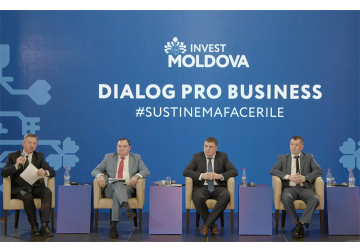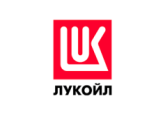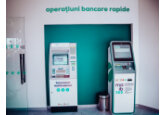
The automotive industry is facing hard times.
Today it is especially important to establish an active dialogue between business and government, in order to pass together through the difficult period with minimal losses. The situation in the automotive industry was the topic of one of the discussion sessions of Dialog Pro-Business, organized by the Investment Agency of Moldova last Friday.
Today the automotive industry of Moldova is more than 300 million euros in investments and more than 20 thousand people with an average monthly salary of 10 thousand lei. The automobile industry provides 33% of export of industrial goods from Moldova and 15% of total export of the country.
Seven Free Economic Zones (FEZs) operating in Moldova provide almost 50% of the country’s industrial production.
Residents of today’s largest Free Economic Zone - Balti FEZ, which has been operating for 12 years, annually pays more than 50 million U.S. dollars in wages to workers, makes purchases worth 20 million dollars in Moldova, pays over 30 million U.S. dollars in taxes to the budget of the country.
Marin Ciobanu, Chief Administrator of the Balti FEZ: Because of the hostilities in Ukraine our resident investors have had logistic problems, production chains have broken, many companies have simply stopped producing cars, including because of the interruption of the supply of sub-components produced in Russia and Ukraine. The other day I talked to the management of six companies, four of which are the largest residents of the Balti FEZ. All of them say that there is a risk of losing up to 50% of the production volume placed in Moldova. I do not want to be dramatic, but the truth should be perceived through the prism of reality. Our task is to collect all the information, to provide it to the industry participants and the government so that appropriate decisions be made depending on the current situation.
One of the problems, which only intensified during the military crisis in the region, is the availability of qualified workers for the Moldovan automotive industry. All countries are competing to attract investments, but for most companies an important issue is the availability of labor. On the one hand, Moldova could become a platform for investors who left Ukraine and Russia; on the other hand there is a big competition for them in the region. Serbia, Northern Macedonia and Romania are actively attracting investors.
Investors pay special attention to the countries of North Africa - Tunisia and Morocco, where the labor force is twice cheaper than in Moldova. The weak link in the competitive struggle in Moldova is the lack of payment for the job created: many countries practice paying from 3 to 10 thousand euros to the investor for each job created. As for Romania, as a member country of the European Union, there are subsidies for investors from special funds to create jobs.
Eduard Tugui, head of the Investment Attraction Policy and Industry Development Department of the Ministry of Economy: The activity of the government and the Ministry of Economy, in particular, is aimed at the development of industry, FEZs and, in particular, the automotive industry. This sector has appeared and is developing in Moldova thanks to the activity of the FEZs and the resident foreign investors. This is a reality that nobody can dispute. There are a number of structural problems and concerns of the sector, related to the prospects of the FEZs in the context of the EU Association Agreement; and there are problems generated by the crisis in Ukraine. The ministry is interested in gathering all possible information from industry representatives in order to be able to provide support in solving certain problems. But there are also circumstances that are beyond the government's control. Therefore, we have to distinguish between issues related to structural changes and those caused by the crisis in Ukraine.
Guido Mailnet, General Manager of Draexlmaier: When you are a foreign investor in another country, it is important to have a certain support. This is the support we have received for 15 years from the administration of Balti FEZ, where our two plant are operating. It responds quickly to any questions that arise. Our corporation works in just-in-time mode, when the supplies come from the wheels, and this work has been well established. So it's very important to maintain the current customs procedures and structure and avoid any reorganization that would have a negative impact on our work. And then we will be able to bring in new investors. I am very glad that in 2017, when the issue of opening another plant in Ukraine or Moldova was being decided, I was able to give weighty arguments and the choice was made in favor of Moldova. Currently our plant in Cahul employs over 1,000 people. And today the government must create anti-crisis programs to support the Moldovan auto manufacturing sector. Sooner or later the crisis will pass, but the car industry in Europe is the engine of economic development, this industry is a locomotive in the country and will pull the development of industrial production.
Alexander Vasiliev, Deputy Director of Gebauer: Close communication between business and government is especially necessary in the context of regional crisis. One of the most important problems that foreign investors face in the automotive industry today is the lack of qualified labor. The government needs to promote at the level of state programs the development of labor force, to keep specialists in the country and to bring people back to the country from abroad. I would like to express special gratitude to the Balti Regional State Administration, which managed to create a very good business climate and contribute to the development of industrial production in the country, and always actively supports investors, especially in times of crisis.
Executive Director of the Patronage Association of the Manufacturing Industry Ion Tornea: We passed five main tasks to the leadership of the Ministry of Economy on which we should focus and get a positive effect in the near future. Because of the crisis in the auto industry there is a risk of losing 50% of production, which is 15-20% of the country's exports. Then there will definitely be a crisis. The sector employs 20 thousand people, half of whom risk losing their jobs. We can hardly expect to fully protect the automobile industry, but if measures are taken, the negative consequences can be minimized.
During the discussion sessions of Dialog Pro-Business, it was emphasized that even before the hostilities in Ukraine, the investment climate of Moldova's Free Economic Zones had been harmed. Investors were confused by a number of articles in the mass media stating that the Free Economic Zones would allegedly be closed in 2024. This led to a revision of planned investments in Moldova.
The administration of the Balti FEZ carries out a lot of work with investors, convincing them to open and expand production in Moldova, and speculation around the mechanism of Free Economic Zones is very harmful to the investment climate of Moldova. Only at the end of 2021 the Balti FEZ signed memorandums with four major companies that launched investment projects worth over 100 million euros. A Danish company purchased real estate in the Balti Zone worth 5 million lei, but now says that "it lacks clarity and confidence". Gebauer, which wanted to open a new plant after speculation in the Moldovan press, is now considering other countries for this. Bautex has purchased a land plot worth 7 million lei in Straseni for the new project.
Marin Ciobanu, President of the Patronage Association of the Manufacturing Industry: All these 100 million were blocked at one time, only because of the news posted in the public space. It is very difficult to attract investments in Moldova. We compete with other countries, some of which offer the investor up to 10000 euros for each created job. Residents are accused of enjoying benefits. We have calculated that if the residents of the Balti FEZ paid all taxes, in 12 years of activity, the budget would have received 4.3 million euros extra. But these companies leave in Moldova 100 million euro annually in the form of wage fund of 55 million euros, 25 million euros in purchases and 30 million euros in taxes. There are more than a hundred facilities in Moldova, other than FEZs, and this is confirmed by the Court of Accounts, which have tax exemptions. In total, they underpay the budget about 1 billion lei. And no one writes about it. As regards the Balti FEZ, we have proved the efficiency of work and mutual benefit of cooperation between investors and the Republic of Moldova. And when there is something that works well, we should think a hundred times before taking any drastic steps.
Press Service Balti FEZ







